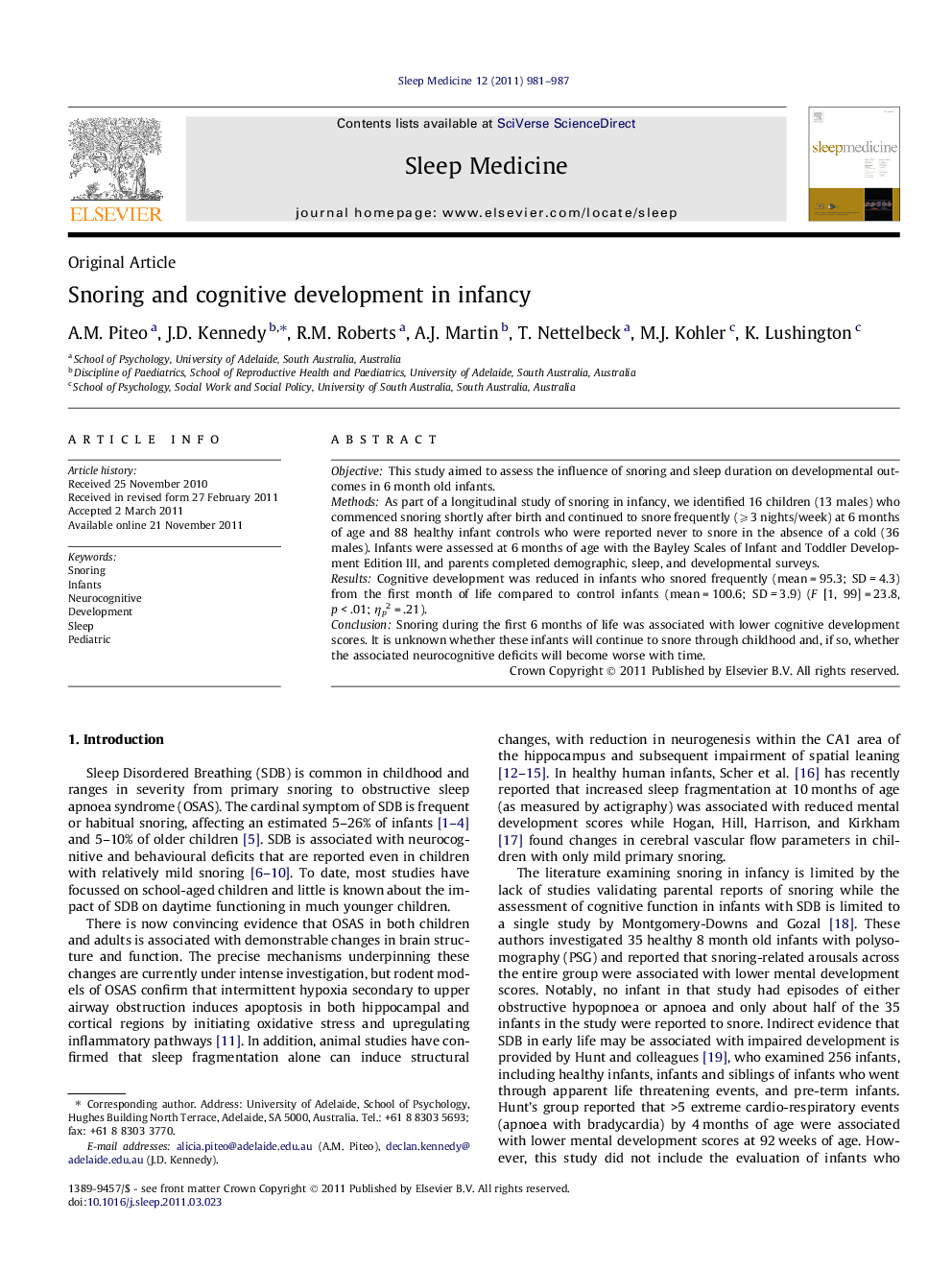| Article ID | Journal | Published Year | Pages | File Type |
|---|---|---|---|---|
| 3176622 | Sleep Medicine | 2011 | 7 Pages |
ObjectiveThis study aimed to assess the influence of snoring and sleep duration on developmental outcomes in 6 month old infants.MethodsAs part of a longitudinal study of snoring in infancy, we identified 16 children (13 males) who commenced snoring shortly after birth and continued to snore frequently (⩾3 nights/week) at 6 months of age and 88 healthy infant controls who were reported never to snore in the absence of a cold (36 males). Infants were assessed at 6 months of age with the Bayley Scales of Infant and Toddler Development Edition III, and parents completed demographic, sleep, and developmental surveys.ResultsCognitive development was reduced in infants who snored frequently (mean = 95.3; SD = 4.3) from the first month of life compared to control infants (mean = 100.6; SD = 3.9) (F [1, 99] = 23.8, p < .01; ηp2 = .21).ConclusionSnoring during the first 6 months of life was associated with lower cognitive development scores. It is unknown whether these infants will continue to snore through childhood and, if so, whether the associated neurocognitive deficits will become worse with time.
